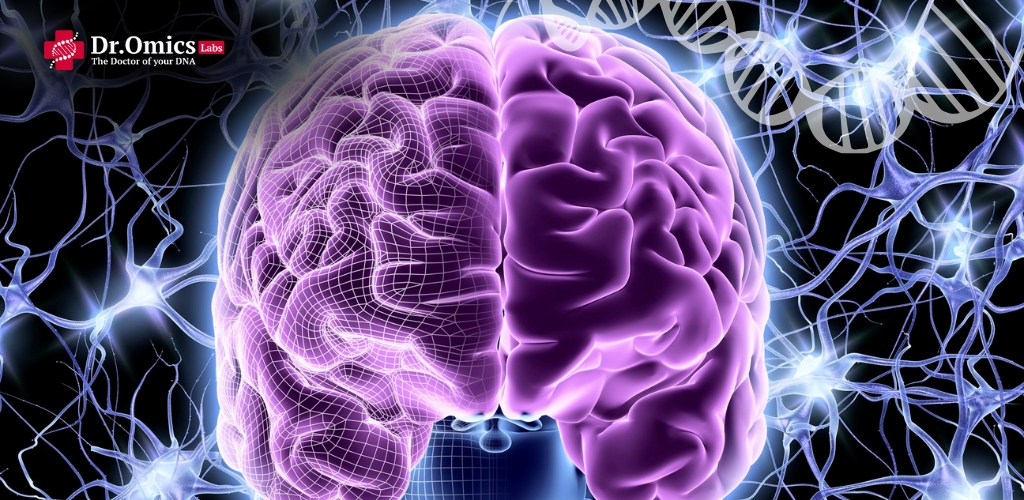The human brain is a marvel of complexity, but this intricacy also makes it susceptible to a variety of disorders. Neurological conditions like Alzheimer’s disease, Parkinson’s disease, epilepsy, and multiple sclerosis have long puzzled researchers and clinicians. However, advances in genetic testing are transforming our ability to understand and treat these disorders. By uncovering the genetic underpinnings of neurological health, genetic testing offers a gateway to personalized medicine, moving beyond generalized treatments to tailored approaches.
Neurological DNA testing analyzes a person’s genetic makeup to detect variations or mutations associated with brain function and neurological disorders. This powerful tool helps clinicians identify risks, optimize treatment, and even prevent disease progression.
How Neurological DNA Testing Works
Neurological DNA testing involves analyzing specific genes linked to neurological conditions. These genetic variations may either increase susceptibility to a condition or affect its severity and progression. Testing can pinpoint inherited mutations or de novo changes that arise spontaneously.
Key Benefits of Neurological Genetic Testing:
- Early Identification: Detects predispositions to conditions like Alzheimer’s or multiple sclerosis, enabling preventive interventions.
- Treatment Customization: Guides medication selection based on a person’s genetic profile to maximize effectiveness and minimize side effects.
- Informed Risk Management: Helps individuals and families make proactive healthcare decisions.
Genes Central to Neurological Disorders
1. APOE (Alzheimer’s Disease):
The APOE gene is central to understanding Alzheimer’s risk. Individuals carrying the APOE ε4 variant have a significantly increased likelihood of developing the disease. Testing for this gene helps identify high-risk individuals who may benefit from early monitoring and lifestyle modifications aimed at delaying disease onset.(1)
2. LRRK2 (Parkinson’s Disease):
Variants in the LRRK2 gene are associated with familial and sporadic Parkinson’s disease. These mutations can influence the progression of the disease, and understanding them can guide targeted therapies or inclusion in clinical trials for novel treatments.(2)
3. SCN1A (Epilepsy):
The SCN1A gene plays a key role in the function of sodium channels in neurons. Mutations in this gene are often linked to drug-resistant forms of epilepsy, such as Dravet syndrome. Genetic testing can identify these mutations, enabling personalized treatment plans, including the avoidance of certain medications that may worsen the condition.(3)
4. HLA Variants (Multiple Sclerosis):
HLA gene variants are closely linked to multiple sclerosis (MS). These genetic markers not only help assess the risk of developing MS but also provide insights into disease progression and response to therapies, aiding in the development of more effective treatment strategies.(4)
Precision Medicine in Neurology
Precision medicine leverages genetic insights to craft personalized approaches to healthcare. In neurology, this means tailoring treatments to an individual’s unique genetic and molecular profile. For example, pharmacogenomics—a branch of precision medicine—uses genetic data to determine how a person metabolizes certain medications, thereby optimizing drug choice and dosage.
Additionally, precision medicine enables early interventions. By identifying genetic predispositions to conditions like Parkinson’s or Alzheimer’s, clinicians can recommend preventive strategies, such as lifestyle changes or experimental therapies, to delay the onset of symptoms.
Challenges in Neurological Genetic Testing
While the potential of genetic testing in neurology is vast, certain challenges remain:
- Interpretation of Results: Not all genetic variations have established clinical significance, creating uncertainty in some cases.
- Ethical Considerations: Genetic testing raises questions about privacy, data security, and the psychological impact of knowing one’s risk for a severe disorder.
- Access and Cost: Advanced testing methods can be expensive and are not universally accessible.
What’s New in Genetic Testing for Neurological Health
Recent advancements in genetic testing for neurological health have significantly enhanced our understanding and management of various neurological disorders. Here are some key developments:
Gene Therapy Innovations for Neurological Disorders
Recent advancements in gene therapy are paving the way for innovative treatments targeting neurological disorders, including Alzheimer’s disease and Parkinson’s disease. Here are some significant developments in this field:
1. Noninvasive Gene Delivery Methods
Researchers at Rice University have pioneered a noninvasive gene therapy method that allows for precise targeting of specific brain regions. This technique involves injecting modified gene delivery vectors into the bloodstream, enabling them to cross the blood-brain barrier and enter targeted areas of the brain without the need for invasive surgical procedures. The modified adeno-associated viral vectors (AAVs) used in this approach have shown improved efficiency in delivering therapeutic genes while minimizing off-target effects, particularly reducing liver transduction, which can lead to toxicity. This innovation represents a major step forward in making gene therapy safer and more effective for treating neurological disorders.(5) (6)
The Future of Neurological Genetic Testing
As technology continues to advance, genetic testing is expected to play an even larger role in neurology. Innovations like whole-genome sequencing, CRISPR-based therapies, and machine learning are pushing the boundaries of what genetic testing can achieve. These advancements promise earlier diagnoses, more effective treatments, and better outcomes for patients with neurological disorders.
Conclusion
Genetic testing for neurological health represents a paradigm shift in how we understand and manage brain disorders. By focusing on genes like APOE, LRRK2, SCN1A, and HLA, clinicians can uncover the genetic foundations of these conditions, allowing for more accurate diagnoses, personalized treatments, and proactive care strategies.
The integration of genetic testing with precision medicine is paving the way for a future where neurological health is managed with unparalleled accuracy, giving patients and families hope for better outcomes and improved quality of life.
References:
(2)https://pmc.ncbi.nlm.nih.gov/articles/PMC7759975/
(3)https://pubmed.ncbi.nlm.nih.gov/20831750/
(4)https://pubmed.ncbi.nlm.nih.gov/22253788/
(6)https://news.rice.edu/news/2024/researchers-pioneer-noninvasive-gene-therapy-brain-disorders




